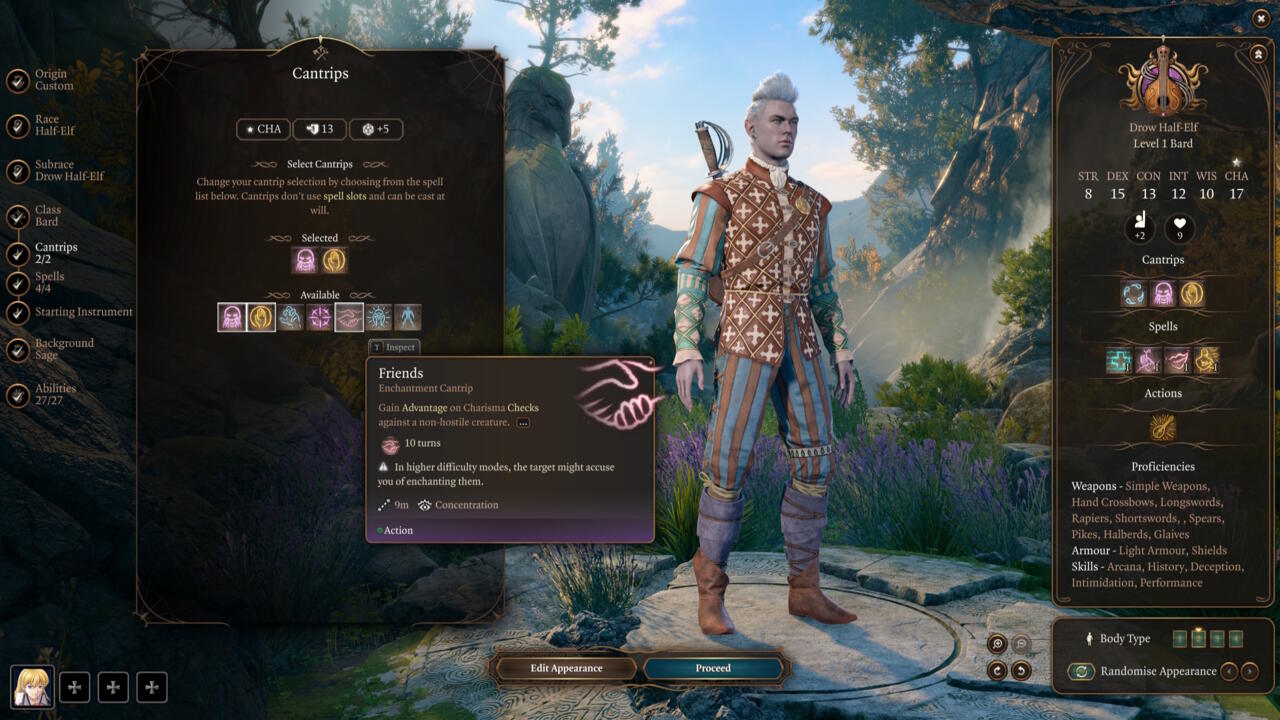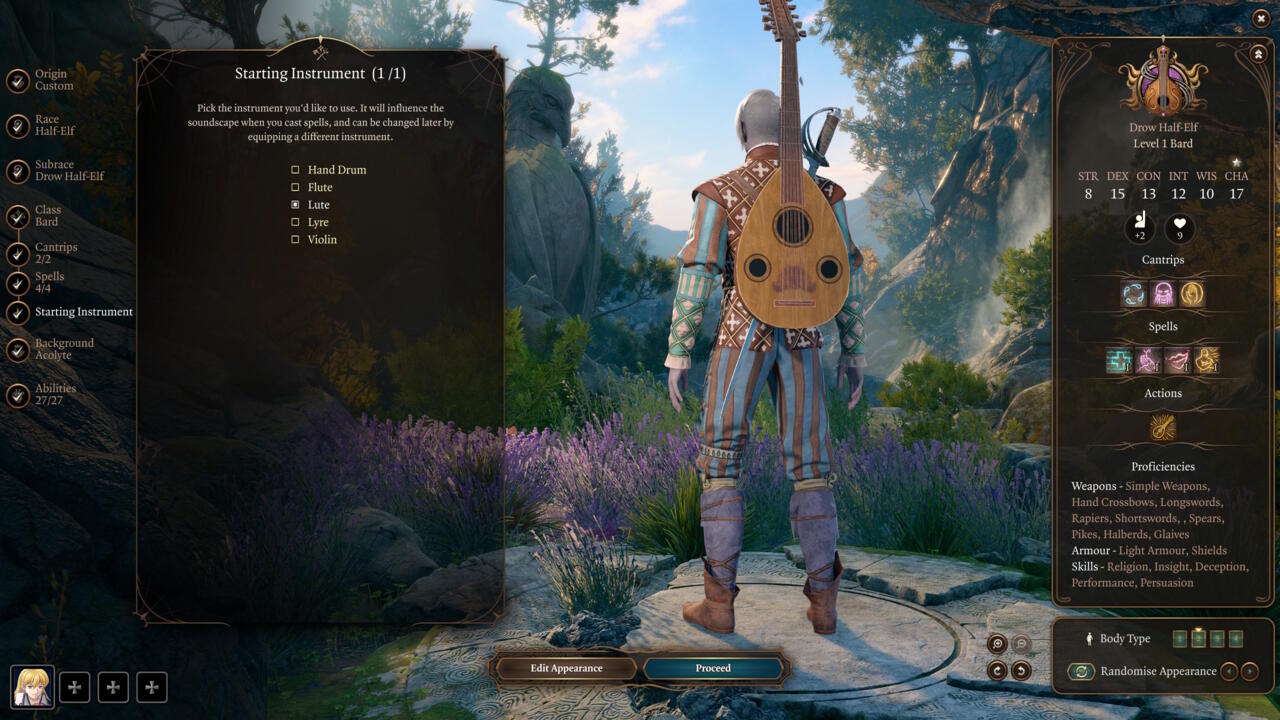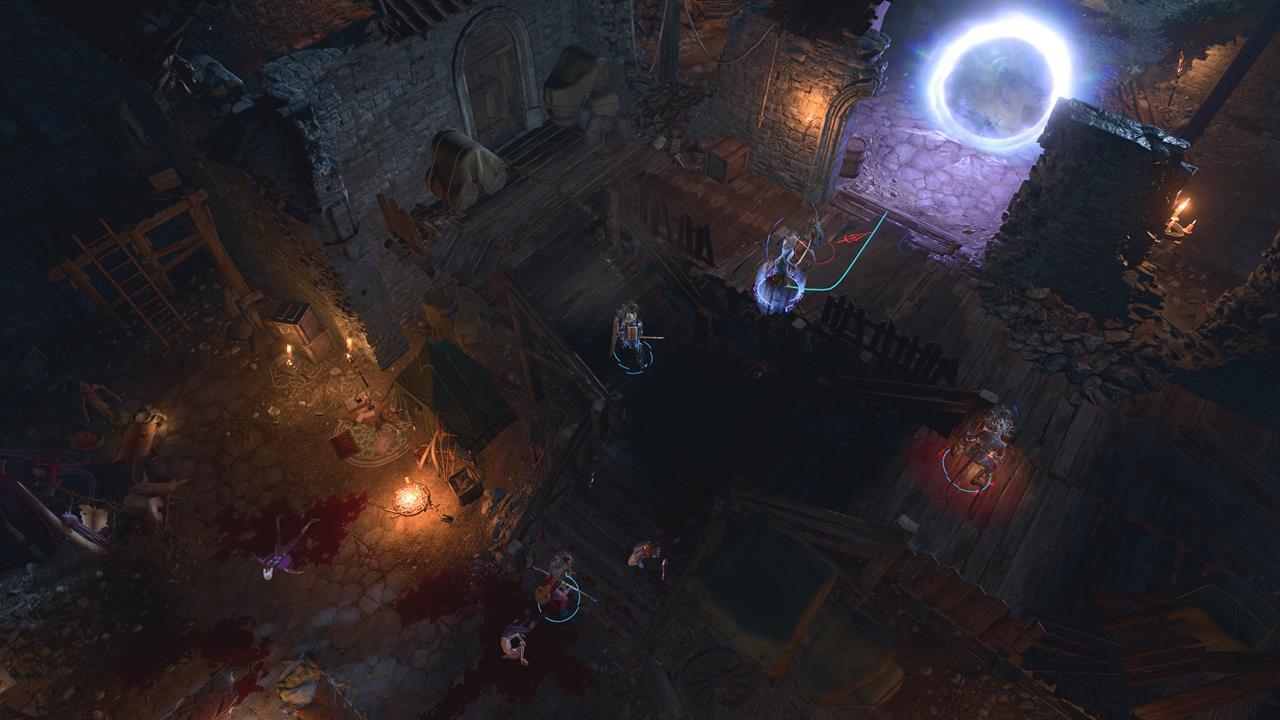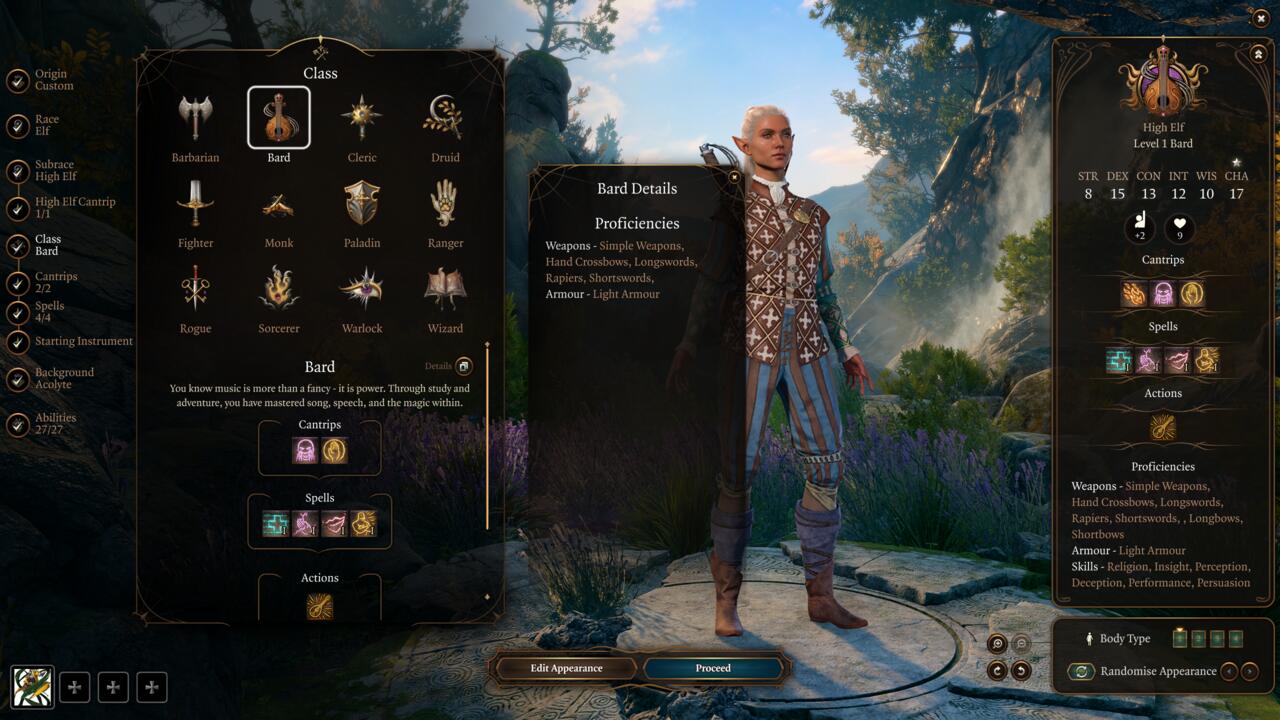Baldur’s Gate 3 Bard class introduction
The Bard lives up to their Jack-of-All-Trades trait, with a range of proficiencies throughout the board and the choice to utilize spells, assistance skills, debuffs, and melee attacks. Bards specialize in Charisma, which is the structure for a great many social skill checks, consisting of persuasion and intimidation.
Depending upon which subclass you pick, you can even specialize your Bard as a melee fighter who holds their own in battle.

Bard Class Features
The Bard is relatively uncomplicated, unlike the Monk, with their feature sheet consisting of two constitution summaries and their crucial function: Bardic Inspiration.
Hit Points at level 1: 8 + Constitution modifier
Struck Points at 5 + Constitution modifier
Bardic Inspiration lets you target one ally and approve them an extra six-sided die roll for their next attack, capability, or conserving throw. You can use it in combat for a chance to power up a character’s next move or in expedition for some benefit points on that character’s next toss– but you can’t use it on yourself. If you’re using it in exploration, don’t forget to manage the character under Bardic Inspiration so you really get that advantage on an ability check throw.
The die increases to an eight-sided die at level 5 and a 10-sided die at level 10.
Bard Proficiencies
The Bard’s middle-of-the-road technique reaches their efficiencies with weapons and armor also.
Light Armor
Easy weapons
Hand Crossbows
Longswords
Shortswords
Rapiers
Starting Instrument: Your option of drum, lute, lyre, flute, violin
Conserving throws: Dexterity, Charisma
Skills: Choose any three
Spells: Choose 2 Cantrips
Starts with 2 Level 1 Spell Slots
Bard subclasses
The Bard can concentrate on three subclasses, each of which constructs on one of their unique elements.
College of Lore
College of Lore Bards concentrate on Arcana, Intimidation, and Sleight of Hand, gaining more spell slots as they level up together with access to the Magical Secrets spell branch at level 6. If you wish to turn your Bard into a support system who assists allies and disables foes, this is the branch for you.
College of Valor
Valor Bards are little singing soldiers, performers who get proficiency in heavier armor and deadlier weapons. You still get your spell slots and even an additional attack, however you do not gain any other ability proficiencies that aren’t fight related.
College of Swords
College of Swords Bards lean more into complex melee attacks, with skills that can raise your armor level or push enemies away. They also get proficiency in medium armor, scimitars, Deception, and Performance, so it’s a “best of both worlds” class.
Bard character development tips
The Bard doesn’t have lots of moving parts to handle, though your initial weapon efficiencies restrict the choice of races to choose from.
Finest Bard race
I recommend a High Elf for your Bard for a few factors.
Extra cantrip slot
Immune to sleep magic
Can see in the dark
Saving throw to secure against appeal
You might select something like a Drow or Tiefling to get a more comprehensive set of weapon proficiencies, however that extra Cantrip slot is the most essential thing you can do for your Bard.
Finest Bard background
The background you select isn’t extremely crucial for your real construct, considering that it just adds 2 extra efficiencies. Some great Bard choices are:
Charlatan, for Sleight of Hand and Deception
Entertainer, for Performance
Guild Artisan, for Insight and Persuasion
I chose Noble, a background with two proficiencies that fit my roleplaying concept and have nothing to do with my construct, and I’m not suffering for it. The most important thing to keep in mind about your selected background is that it influences how and when your character gains motivation.

Best Bard stat point distribution
The beginning stat spread the game recommends is a strong option for the Bard.
Strength – 8
Mastery – 15
Constitution – 13
Intelligence – 12
Wisdom – 10
Charm – 17
Consider dropping Intelligence a couple of points and putting those into Strength if you choose for College of Swords.



